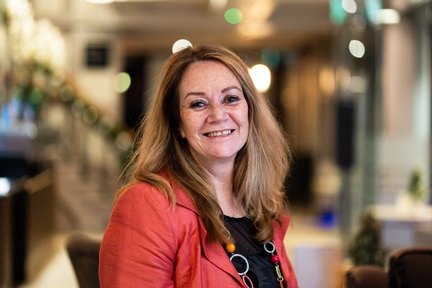Proposed changes to Ofsted ratings provoke mixed feelings
Ofsted plans to target weaker day nurseries and pre-schools with more inspections have been welcomed by the Pre-school Learning Alliance, but the decision to change the definition of service ratings sees the two organisations taking opposing views.
Chief inspector Sir Michael Wilshaw has announced this morning that the regulatory body is planning to replace the current ‘Satisfactory’ rating with ‘Requires Improvement’.
Speaking to the BBC earlier today, chief inspector Sir Michael Wilshaw justified the new rating by stating that “anything that is less than good is not good enough”.
“Nurseries will have four years to improve,” he continued, “otherwise they will be judged to be inadequate and de-registered.”
![]() Pre-school Learning Alliance chief exec Neil Leitch
Pre-school Learning Alliance chief exec Neil Leitch
However, Alliance chief executive Neil Leitch feels the wording will fail to connect with parents who are in the process of considering early years services.
Mr Leitch comments, “Anything that seeks to improve the quality of childcare has to be welcomed.
“The Alliance has lobbied for several years that Satisfactory settings are given the opportunity to demonstrate how they have improved, so the move to more frequent inspections is good news.
“However, we are concerned that the term ‘Requires Improvement’ may mean little to parents as any setting, regardless of Ofsted rating, should always be looking to improve. A recent survey of 1,000 parents has found little correlation between how they rate childcare provision and Ofsted’s own rating.”
Mr Leitch also warns of further pressure on services due to changes to child-to-staff ratios, while questioning the extent to which central and local government is being organised to help the nursery sector.
He continues: “Changing the judgement rating will do absolutely nothing to improve quality if early years settings are not given appropriate support. The Government is soon to remove the role that local authorities play in supporting their local settings and training support for the sector has been reduced by 40 per cent in the last year.
“At the same time the Government is proposing that nursery workers look after up to 50 per cent more children – a move that parents themselves overwhelmingly oppose.
“While we welcome the aspiration of high-quality childcare, without a rethink on policy and adequate funding from Government, we struggle to see how a real improvement will be made.”
Joint chief executive of PACEY (Professional Association for Childcare and Early Years), Catherine Farrell, believes there needs to be more focus on Ofsted’s own operations, commenting:
“PACEY believes changing the inspection process is just one aspect of driving up standards. These new grades can only be introduced if Ofsted’s own inspection judgements are more robust and if government recognises that providers will still need support and advice on how to improve.
“Professional bodies like PACEY provide on-going support, training and development to its members. Our growing membership of childcare professionals – childminders, nannies and nursery workers – are testament to the fact that continuous professional development (CPD) helps improve the quality of the care they provide. Yet, as Ofsted has set out, there are a significant number of providers who do not access such support. Ensuring these providers will improve requires dedicated quality improvement programmes, not just more frequent inspections.

“So PACEY is concerned that, as Ofsted proposes these changes, Government is proposing to make it more challenging to deliver high quality childcare. It wants to increase adult/child ratios in nurseries and allow childminders to care for more children under five; to change qualification entry requirements for nursery workers but not for childminders and to remove local authority responsibility to keep their registered providers trained and up to date. This all goes against Ofsted‘s own evidence that on-going quality improvement interventions and CPD support childcare professionals to improve their practice and so drive up quality for children.
“Government must think again on ratios and look beyond entry qualifications and graduate leadership of settings, to ensure that all childcare professionals are required and supported to continuously develop their practice and ensure quality care for children.”
Ofsted’s plans are to run a consultation on this matter until May 24, with the revised framework to be finalised and put in place in September.
Sir Michael’s vision is for the regulator to produce a framework that can impact upon low income families where literacy rates are poorest. He says:
“Parents, whatever their circumstances, want their children to access good quality childcare and get a good early education that sets them up well for statutory schooling. Yet too many providers are not good enough, particularly in the most deprived areas. We must be tougher on weak settings. From September 2013, nurseries and pre-schools judged less than good will need to improve rapidly. I want the new designation of ‘requires improvement’ to act as a catalyst to get all early years providers to good as soon as possible.”
Latest News
 24-Apr-24
Find out the top nurseries in 2024
24-Apr-24
Find out the top nurseries in 2024
 06-Jun-23
UK's top nurseries in 2023 revealed
06-Jun-23
UK's top nurseries in 2023 revealed
 16-Dec-22
Winter Wonderland: Ice sculptures, aerial acrobatics and white knuckle rides
16-Dec-22
Winter Wonderland: Ice sculptures, aerial acrobatics and white knuckle rides
 28-Nov-22
5 mins with Caroline Wright, early childhood director at Bright Horizons
28-Nov-22
5 mins with Caroline Wright, early childhood director at Bright Horizons
 25-Nov-22
Camilla gives nursery children Paddington bears left as tribute to Queen Elizabeth II
25-Nov-22
Camilla gives nursery children Paddington bears left as tribute to Queen Elizabeth II